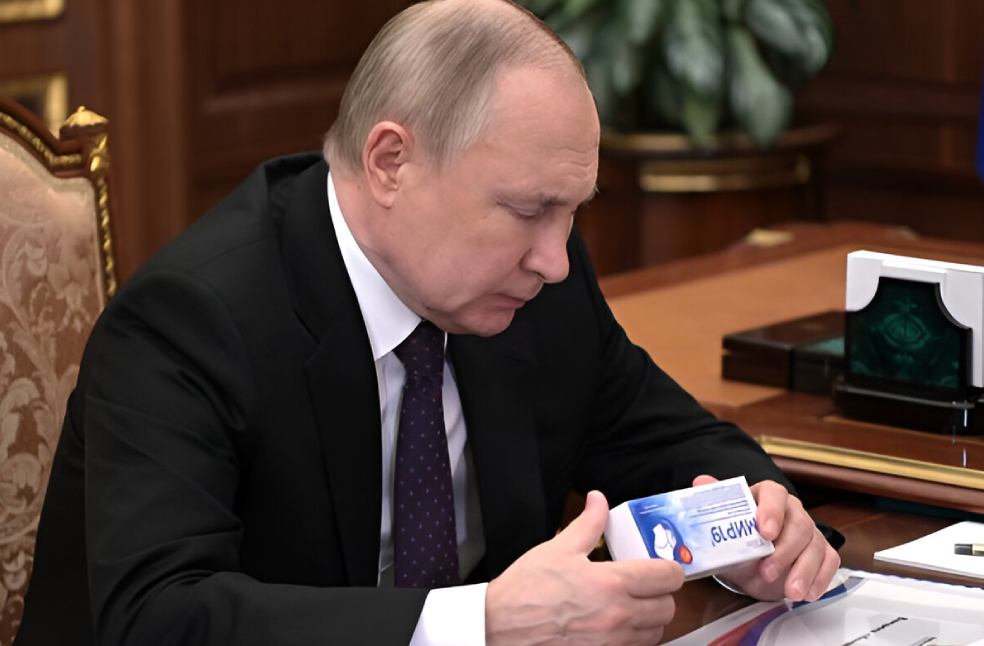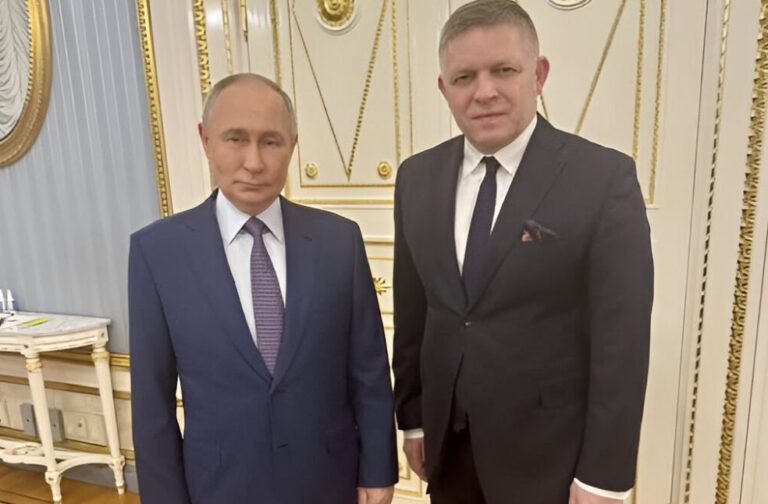Moscow: Slovakia’s Prime Minister Robert Fico has stirred controversy by making an unannounced trip to Moscow to hold talks with Russian President Vladimir Putin. This marks him as only the third Western leader to meet Putin since Russia’s full-scale invasion of Ukraine in 2022, joining Hungarian Prime Minister Viktor Orban and Austrian Chancellor Karl Nehammer.
Fico, a prominent critic of the European Union’s support for Ukraine, stated that the discussions centred on Russian gas supplies to Slovakia, which remains heavily reliant on them. The current gas transit agreement between Russian energy giant Gazprom and Ukraine is set to expire at the end of this year, and Kyiv has signalled it will not renew the deal.
During the meeting, Fico claimed Putin was “wrongly demonized” by the West and emphasized the need for pragmatic solutions to secure Slovakia’s energy needs. However, he acknowledged challenges, noting that Ukraine’s refusal to extend the transit deal makes direct gas supplies “practically impossible.”
Fico’s visit represents a departure from the EU’s Common Security and Defence Policy, under which member states have charged multiple sanctions on Russia since the invasion began. While the Slovak leader informed top EU officials of his trip beforehand, the move has drawn sharp criticism both domestically and internationally.
Czech Foreign Minister Jan Lipavsky condemned the visit, expressing solidarity with Ukraine and calling the trip a betrayal of EU unity. Michal Simecka of Progressive Slovakia labelled the visit a “disgrace” and accused Fico of playing into Russian propaganda.

Despite this backlash, Fico defended his actions as being in Slovakia’s national interest, pointing to the country’s dependence on Russian gas. Environment Minister Tomas Taraba and the far-right Slovak National Party also backed the trip, emphasising the importance of affordable energy for Slovakia’s economy.
Fico stated that he discussed “the possibilities of an early, peaceful end to the war” with Putin. However, the timing of the visit coincides with heightened criticism of Slovakia’s withdrawal of military aid to Ukraine, a policy shift introduced by Fico upon returning to power in October 2023.
Meanwhile, EU leaders meeting at a security summit in Finland denounced Russia’s actions and reaffirmed their support for Ukraine. Finnish Prime Minister Petteri Orpo described Russia as a “permanent and dangerous threat” to Europe and called for increased defence spending to counter the Kremlin’s aggression.
The reaction at home remains divided. While opposition parties and many citizens see the visit as a betrayal of Slovakia’s EU and NATO commitments, members of Fico’s ruling coalition argue the trip was essential for securing the country’s energy security.
As tensions persist, the future of Slovak-Russian relations and their implications for EU unity remain uncertain.



